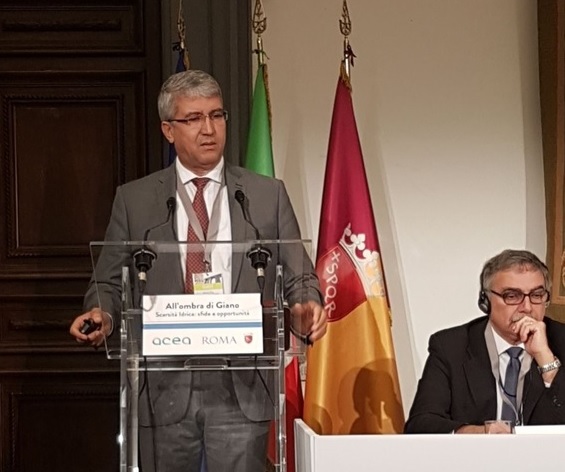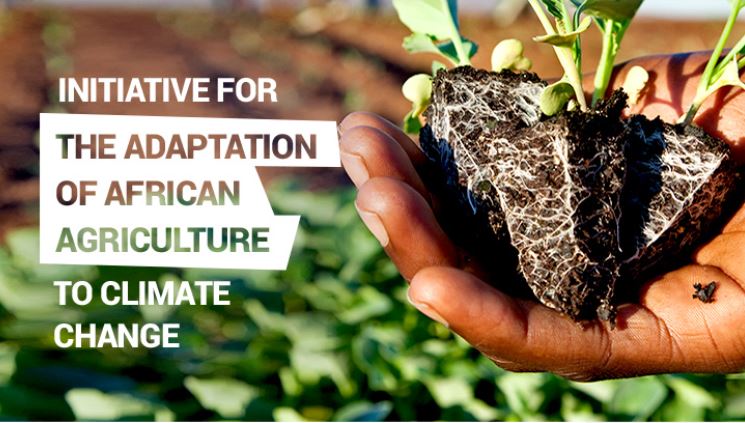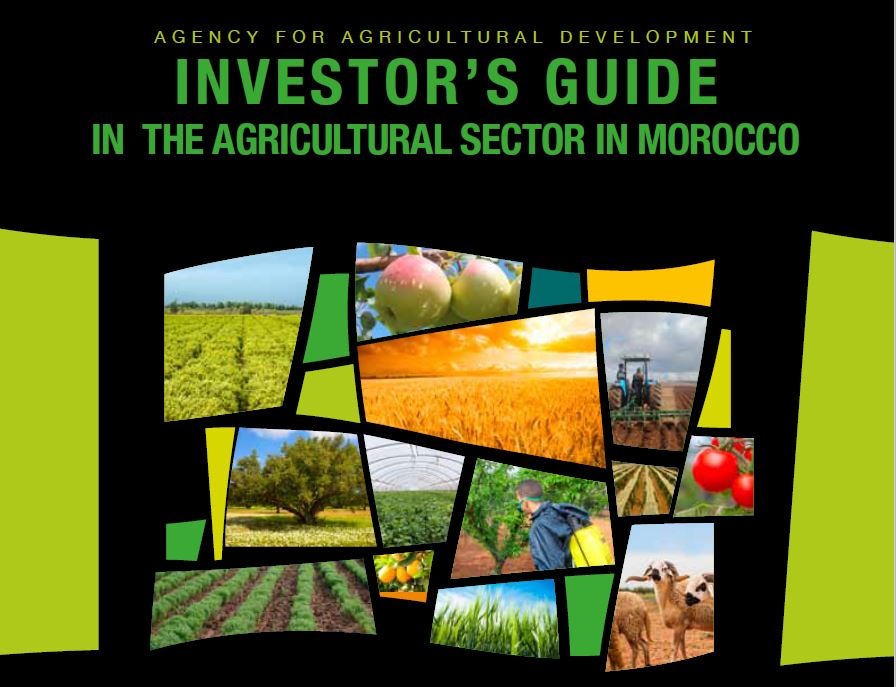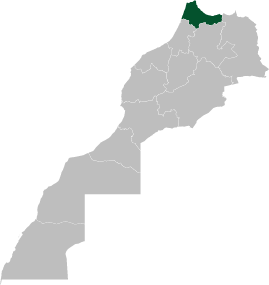
High-level workshop on "Water scarcity in the Mediterranean region: challenges and opportunities”
Rome, Italy, 17 November 2017 With the collaboration of the UNFAO and the CIHEAM, ACEA, Italy’s National Water, Energy and Environmental Services multi-utility, organized the workshop "Water scarcity in the Mediterranean region: challenges and opportunities”. This meeting intended to bring together actors from the public and private sectors, civil society and academics that have a strong interest in improving the performance of irrigation systems, in order to discuss issues and solutions regarding water scarcity in the Mediterranean region. The Vice-Presidents of the CIHEAM, Mr Gianni Bonini and Mr Mohammed Sadiki and the Director of the CIHEAM Institute of Bari, Maurizio Raeli, participated to this strategic workshop in line with the CIHEAM objectives to promote stronger partnerships and cooperation with a diversity of actors for Sustainable Development. Water scarcity is a global major constraint aggravated by the combined effects of irregular rainfall, the increasing needs of the countries to meet the demographic pressure and of the economic sectors (agriculture, industry, drinking water, tourism, etc.) and by the impact of climate change. With a water use rate of 69%, the agricultural sector is by far the most water consuming and the most affected by climate change. For the Mediterranean, climatic constraints, particularly the scarcity of water resources have always been structural characteristics. Societies have developed ingenious agricultural production systems adapted to local specificities. However, today, this resilience is being challenged. Concerning countries whose water availability per year and per inhabitant is less than 1700 m³, water insecurity is already affecting 10 Mediterranean States (Libya, Israel, Egypt, Jordan, Morocco, Algeria, Tunisia, Malta, Palestine, Syria). Nearly 180 million people are describes as "water poor" in the region (Mediterra 2016). Due to rising population, gaps between per capita water resources and problems to access water are expected to increase. These quantitative and physical limits are coupled with signs of water quality degradation of. As a result, food security will become increasingly dependent on the efficiency of water resources management and the optimisation of irrigation systems. In view of the current situation, all stakeholders including governments, public and private actors and civil society need to take strategic and coordinated action in order to improve agricultural water efficiency and productivity to better ensure food security in the Mediterranean region. Generating and sharing well-adapted and useful knowledge targeted to the needs, through joint research-actions, publications and documenting best practices contributes to address the challenges of water scarcity. In this context, Mohamed Sadiki, Vice-President of the CIHEAM and Delegate of Morocco presented the case of Morocco to illustrate the significant progresses that have been accomplished in terms of techniques and practices for saving irrigation water, its collection and its mobilisation notably thanks to the agricultural development strategy implemented since 2008, called the 'Green Morocco Plan'. This kind of meetings are important to explore the challenges of managing irrigation in countries with limited water resources, to identify the opportunity of introducing advanced methods from other countries and assess the role that farming businesses and socially aware consumers can play. Link to Presentation of the Vice-President of the CIHEAM, Pr. Mohammed Sadiki, “Water Scarcity : The case of Morocco” https://www.ciheam.org/uploads/attachments/623/WaterScarcity_ACEA_FAO_CIHEAM_17112017_Intervention_Mohammed_Sadiki_VP_CIHEAM.pdf Résumé de l’intervention du Pr. Mohammed Sadiki, Délégué du Maroc au CIHEAM, Vice-Président Link to CIHEAM website : https://www.ciheam.org/en/news_and_events/news/one?event=water-scarcity-a-multi-stakeholder-high-level-workshop-to-discuss-challenges-and-opportunities&id=104

High-level workshop on "Water scarcity in the Mediterranean region: challenges and opportunities”
Rome, Italy, 17 November 2017 With the collaboration of the UNFAO and the CIHEAM, ACEA, Italy’s National Water, Energy and Environmental Services multi-utility, organized the workshop "Water scarcity in the Mediterranean region: challenges and opportunities”. This meeting intended to bring together actors from the public and private sectors, civil society and academics that have a strong interest in improving the performance of irrigation systems, in order to discuss issues and solutions regarding water scarcity in the Mediterranean region. The Vice-Presidents of the CIHEAM, Mr Gianni Bonini and Mr Mohammed Sadiki and the Director of the CIHEAM Institute of Bari, Maurizio Raeli, participated to this strategic workshop in line with the CIHEAM objectives to promote stronger partnerships and cooperation with a diversity of actors for Sustainable Development. Water scarcity is a global major constraint aggravated by the combined effects of irregular rainfall, the increasing needs of the countries to meet the demographic pressure and of the economic sectors (agriculture, industry, drinking water, tourism, etc.) and by the impact of climate change. With a water use rate of 69%, the agricultural sector is by far the most water consuming and the most affected by climate change. For the Mediterranean, climatic constraints, particularly the scarcity of water resources have always been structural characteristics. Societies have developed ingenious agricultural production systems adapted to local specificities. However, today, this resilience is being challenged. Concerning countries whose water availability per year and per inhabitant is less than 1700 m³, water insecurity is already affecting 10 Mediterranean States (Libya, Israel, Egypt, Jordan, Morocco, Algeria, Tunisia, Malta, Palestine, Syria). Nearly 180 million people are describes as "water poor" in the region (Mediterra 2016). Due to rising population, gaps between per capita water resources and problems to access water are expected to increase. These quantitative and physical limits are coupled with signs of water quality degradation of. As a result, food security will become increasingly dependent on the efficiency of water resources management and the optimisation of irrigation systems. In view of the current situation, all stakeholders including governments, public and private actors and civil society need to take strategic and coordinated action in order to improve agricultural water efficiency and productivity to better ensure food security in the Mediterranean region. Generating and sharing well-adapted and useful knowledge targeted to the needs, through joint research-actions, publications and documenting best practices contributes to address the challenges of water scarcity. In this context, Mohamed Sadiki, Vice-President of the CIHEAM and Delegate of Morocco presented the case of Morocco to illustrate the significant progresses that have been accomplished in terms of techniques and practices for saving irrigation water, its collection and its mobilisation notably thanks to the agricultural development strategy implemented since 2008, called the 'Green Morocco Plan'. This kind of meetings are important to explore the challenges of managing irrigation in countries with limited water resources, to identify the opportunity of introducing advanced methods from other countries and assess the role that farming businesses and socially aware consumers can play. Link to Presentation of the Vice-President of the CIHEAM, Pr. Mohammed Sadiki, “Water Scarcity : The case of Morocco” https://www.ciheam.org/uploads/attachments/623/WaterScarcity_ACEA_FAO_CIHEAM_17112017_Intervention_Mohammed_Sadiki_VP_CIHEAM.pdf Résumé de l’intervention du Pr. Mohammed Sadiki, Délégué du Maroc au CIHEAM, Vice-Président Link to CIHEAM website : https://www.ciheam.org/en/news_and_events/news/one?event=water-scarcity-a-multi-stakeholder-high-level-workshop-to-discuss-challenges-and-opportunities&id=104
6 December 2017

Initiative for African Adaptation agriculture to climate change
Launched upstream of COP22 organized in Morocco, the initiative for the Adaptation of African Agriculture (AAA) aims to reduce the vulnerability of Africa and its agriculture to climate change. It promotes and fosters the implementation of specific projects to improve soil management, agricultural water control, climate risk management and capacity building & funding solutions. The initiative is an important response not only to climate change, but also to food insecurity. Its objective is to place the Adaptation of African Agriculture at the heart of climate debates and negotiations, and to attract a substantial share of climate funds. As for the solutions, it also aims to contribute to the roll-out of specific agricultural projects. The Adaptation of African Agriculture was identified as one of the priorities of the Moroccan presidency for COP22. To date, the initiative is actively supported by 25 African countries, the UNFCCC, and the FAO White book: initiative for the Adaptation of African Agriculture web site : http://www.aaainitiative.org
4 October 2016

INVESTOR’S GUIDE IN THE AGRICULTURAL SECTOR IN MOROCCO
Located on the southern shore of the Mediterranean, on the northwestern tip of Africa and at the gates of Europe, on the western edge of the Arab and Muslim world and the Maghreb, the Kingdom of Morocco has always been a crossroads of civilizations and today an intersection of major regional groupings. Due to its historical choice of the openness to its environment and its willingness to continue to work for a better world, Morocco has accelerated the pace of implementation of structural projects and, by drawing on its liberal orientation, has pursued its modernization at the political, economic and social levels and thus strengthening the stability of the country. Morocco has in fact undertaken a series of structural reforms in order to achieve strong and sustainable growth. Coupled with the progressive liberalization of all sectors of activity, these reforms have had positive results on the national economy. Liberalization of the financial sector and restructuring of public finances; Implementation of several sectoral development strategies that set specific goals of the different sectors and outline them in action plans and performance contracts: Tourism (VISION 20 0), Commerce (RAWAJ PLAN) New Information and Communication Technologies (DIGITAL MOROCCO PLAN), Energy (NATIONAL ENERGY EFFICIENCY PROGRAM), Industry (EMERGENCY PLAN 20 0), Fisheries(HALIEUTIS) and Agriculture(GREEN MOROCCO PLAN); Improving the economic infrastructure: Megaprojects involving highways, railways, seaports and airports; Supporting these projects with appropriate macroeconomic policy reform: Debt reduction, maintenance of macro equilibrium, trade liberalization, taxation adequacy, etc. Among the main sectors of activity, agricultural and agro-industrial sector has undeniable advantages making Morocco one of the most attractive countries in terms of investment in the region. In this context, Morocco has made considerable efforts to improve the investment environment in this sector particularly in the context of the Green Morocco Plan by improving the framework conditions and the modernization of institutional, legislative and regulatory systems regulating the economic activity and strengthening the attractiveness of the Kingdom to domestic and foreign investors. Launched in 2008, the Green Morocco Plan has put the investment at the core of its equation of development and modernization of this sector, and this through triggering a wave of massive investment, around new domestic and international investors operating in the sector, with investments created around private projects or win-win aggregations through specific and adapted Morocco Offer. This investor guide in the agricultural sector highlights the advantages and potentials Morocco offers to investors and project owners in the agricultural, agro-industrial and para-agricultural fields, the different aspects that characterize the business climate as well as the framework conditions and the new developments of the reforms undertaken within the framework of the Green Morocco Plan. INVESTOR’S GUIDE IN THE AGRICULTURAL SECTOR IN MOROCCO




